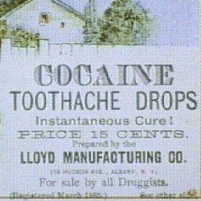Decriminalizing All Drugs: The Case of Portugal
Tuesday, April 28, 2009

When Portugal decided in 2001 to become the first nation in Europe to eliminate criminal penalties for possession of all drugs, from marijuana to heroin, critics warned that the decision would result in “drug tourists” flocking to the conservative Catholic country. Legalizing drugs would surely exacerbate Portugal’s narcotics problem and its high levels of hard-drug use, lamented opponents.
But a new study commissioned by the Cato Institute found illegal drug use among teens in Portugal has declined since the government did away with criminal drug penalties for possession and expanded therapy services. It also discovered that rates of new HIV infections caused by the sharing of dirty needles had dropped, while the number of people seeking treatment for drug addiction more than doubled.
The startling news out of Portugal comes at a time when some lawmakers in U.S. are reconsidering punitive drug laws. In addition to debates going on in legislatures in New York, California and Massachusetts, U.S. Senators Jim Webb (D-VA) and Arlen Specter (R-PA) have proposed that Congress create a national commission to examine prison and drug reforms. It is worth noting that Portugal did not decriminalize drug trafficking.
-Noel Brinkerhoff
Drugs in Portugal: Did Decriminalization Work? (by Maia Szalavitz, Time)
Drug Decriminalization In Portugal (by Glenn Greenwald, CATO Institute) (PDF)
- Top Stories
- Unusual News
- Where is the Money Going?
- Controversies
- U.S. and the World
- Appointments and Resignations
- Latest News
- Trump Orders ICE and Border Patrol to Kill More Protestors
- Trump Renames National Football League National Trump League
- Trump to Stop Deportations If…
- Trump Denounces World Series
- What If China Invaded the United States?






Comments